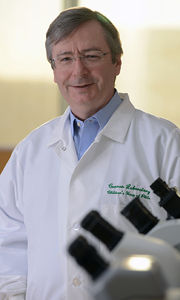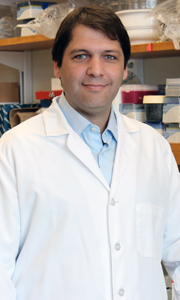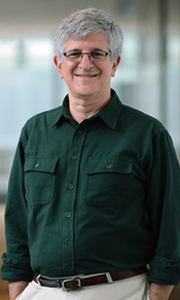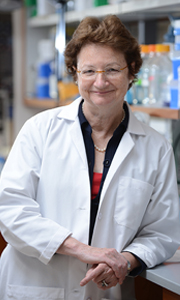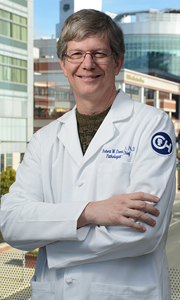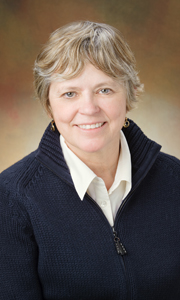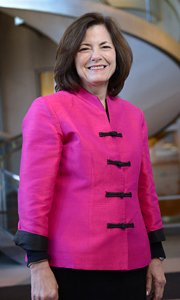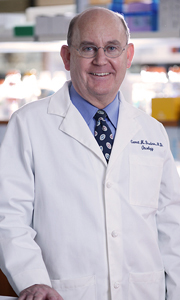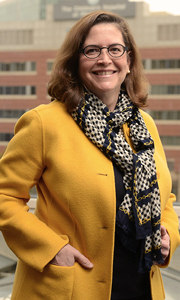World-renowned cancer investigator Tom Curran, PhD, FRS, was honored by the American Association for Cancer Research as it inaugurated the first class of the fellows of the AACR Academy.
Dr. Curran, who is also the deputy scientific director of the CHOP Research Institute, was formally inducted into the Academy on April 5 in Washington, D.C. He was one of 106 fellows from across the country to receive the honor of induction into the AACR Academy.
The Academy was created to recognize and honor distinguished scientists whose major scientific contributions have propelled significant innovation and progress against cancer. The fellows were selected through a rigorous peer review process that evaluates individuals on the basis of their stellar scientific achievements in cancer research.
Dr. Curran, a past president of the AACR, studies brain development and pediatric brain tumors, with an eye toward identifying molecular changes and potential drug targets. He also investigates the mechanism of action of anticancer drugs in tumor cells and cancer models.
Specifically, Dr. Curran discovered the Fos oncogene and its binding partner from another oncogene called Jun. He later showed that these two oncogenes regulate gene expression associated with cell proliferation and differentiation, cell death and neuronal activation. This work illuminated the pathways that go awry in cancer cells, and initiated the use of Fos as a marker for activity-dependent changes in the nervous system.
Dr. Curran recently united his interests in cancer and neurobiology to study children’s brain tumors. He developed a high-incidence model of pediatric medulloblastoma that he used to demonstrate how orally bioavailable, small molecule inhibitors of Hedgehog signaling rapidly eliminate even large tumors in mice. This work led to clinical development of inhibitors of Smoothened for the treatment of basal cell carcinoma and medulloblastoma.
Additionally, Dr. Curran considers among his greatest achievements his contribution to the development of a drug that is now in pediatric trials — Erivedge, which in 2012 was approved by the FDA to treat cancer in adults.
In addition to serving as the Deputy Scientific Director at CHOP Research, Dr. Curran is a Professor of Pathology and Laboratory Medicine and Professor of Cell and Developmental Biology at University of Pennsylvania’s Perelman School of Medicine. He is also the associate director of Translational Genomics at the Penn Genome Frontiers Institute in Philadelphia.



